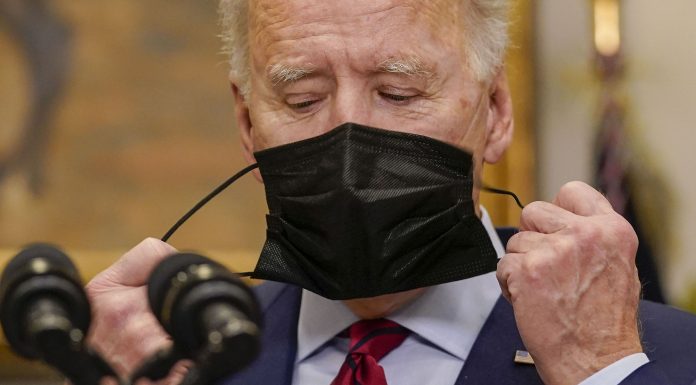(Jon Miltimore, Foundation for Economic Education) The Biden administration announced Monday it will no longer enforce a federal mask mandate on public transportation, including airplanes. The decision was announced after Federal Judge Kathryn Kimball Mizelle ruled that the directive was unlawful, noting that the CDC had not sought public comment prior to its order—issued 14 months ago—and did not adequately explain its reasoning.
Following the court’s decision, four major airlines immediately announced they would drop mask requirements on all domestic flights.
“We are relieved to see the U.S. mask mandate [lifted] to facilitate global travel as COVID-19 has transitioned to an ordinary seasonal virus,” Delta said in a statement.
As Twitter users on planes celebrated the court’s decision, the White House said the TSA would not enforce the CDC’s order while the White House considers “potential next steps”—a signal of surrender.
It’s difficult to precisely convey the magnitude of these events, but they are significant—in large part because masks have become a symbol of this pandemic.
While many Americans chose to wear masks early in the pandemic, the issue became a political lightning rod when government agencies began requiring people to wear them in public—even though politicians were often caught not wearing them and masks were conveniently forgotten during high profile events like the Met Gala and the Super Bowl, where celebrities paid thousands of dollars for tickets to be seen on TV.
The dynamics here are not hard to miss. For moralizers, masks became a way to correct those in need of correction. For enforcers, masks were a way to enforce compliance and demonstrate power.
The actual science on masks, however, is mixed. Early in the pandemic, FEE authors noted voluntary mask-wearing could potentially help reduce the spread of the virus and end lockdowns sooner. As more and more evidence was collected, evidence grew that masks did little to nothing to reduce the spread of COVID-19, something even many mask supporters came to admit.
I was an early mask adopter — & they make intuitive sense — but a growing body of evidence shows that mask mandates don't appear to make much difference at the community level. pic.twitter.com/wnfBUKcZuM
— Liz Highleyman (@LizHighleyman) April 13, 2022
While some sought to paint the court’s ruling as partisan (Mizelle was a Trump appointee) or undemocratic, others pointed out there was bipartisan support in the upper chamber of Congress to repeal the mandate.
“The Senate voted 57-40 to repeal the mask mandate,” data guru and FiveThirtyEight founder Nate Silver pointed out to CNN legal analyst Jeffrey Toobin, who suggested the ruling was partisan.
But in a sense Toobin is right. Mask mandates are more about politics than science, and judges do have very different views on what the goals and limitations of federal bureaucracies should be.
The White House, in a way, confirmed this. If the CDC’s mask mandate would really save hundreds, thousands, or even millions of lives, wouldn’t the Biden administration already be filing an appeal and fighting the court’s decision with all their power instead of instructing the TSA to comply?
However one feels about mask mandates, it’s clear that the Biden Administration’s decision to not continue fighting for the CDC’s order is a political decision—for better or worse. And if that’s the case, maybe it’s time to consider the possibility that mask mandates were always about politics, not science.



